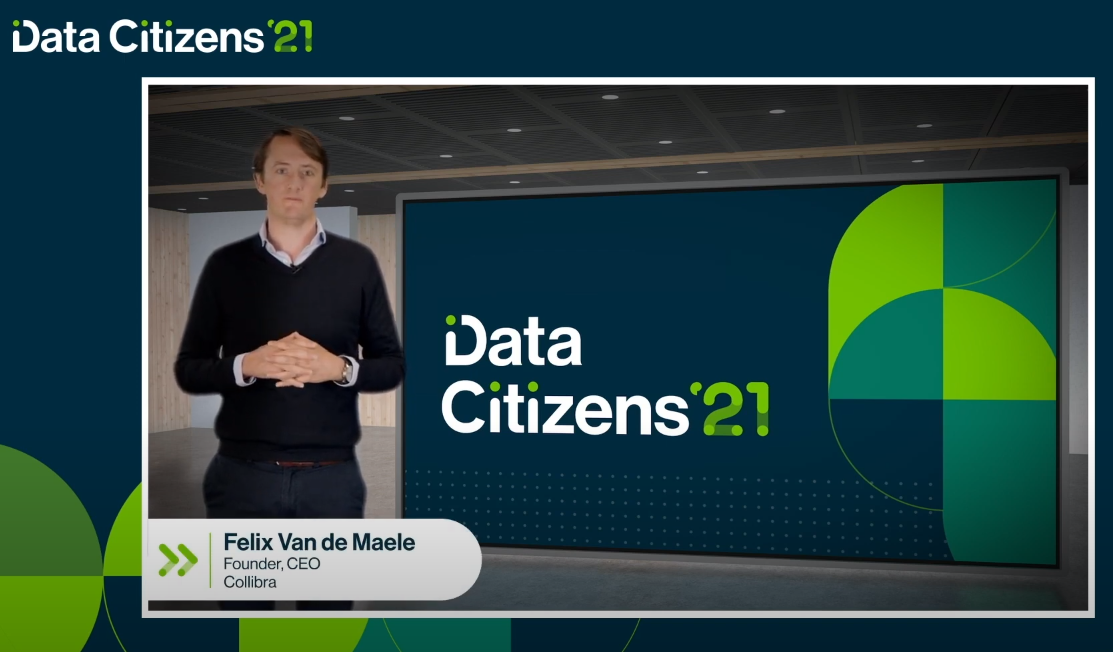 BIG DATA
BIG DATA
 BIG DATA
BIG DATA
 BIG DATA
BIG DATA
The mass pivot to digital operations has caused a tidal wave of change across the business world. From a data perspective two things stand out: The explosion of data across a multitude of digital channels, and the creation of more silos in which that data is gathered.
While it’s hard to track exactly how much excess data was generated thanks to the impact of the increase in remote work, online shopping and streaming media use driven by the pandemic, statistics from Data Never Sleeps show that in each minute of 2020 there was an average of 2,704 new installs of TikTok, $1,000,00 spent online and almost 1,400,000 people on a video or voice call.
“There’s more volume and variety of data than ever before, and it’s been distributed broadly across organizations,” Felix Van de Maele, chief executive officer of Collibra NV, said during his opening keynote for the company’s Data Citizens ’21 conference. “Silos result in disjoined and often ineffectual data teams,” he added, saying that what concerns him more is an increasing lack of confidence in outcomes, which leads to an overall lack of trust in the information. (* Disclosure below.)
Watch the keynote here:
This lack of trust is creating a data conundrum. As businesses become data-driven, they are increasingly reliant on data for daily operations. Yet at the same time, the volumes of data being created make it impossible for them to efficiently manage the data they need to drive business value.
Ninety-seven percent of companies surveyed in a 2021 Broadcom Inc. report on the state of digital business said that data problems are impacting their business operations. The reasons included data overload (too much data), the inability to gain actionable insights from data, problems getting access to insights once they are created (siloed data), slow data processing and data quality problems due to unreliable, corrupt, old and inconsistent data. Only 3% of the companies claimed to have no data problems at all.
“It’s a vicious cycle that must be broken,” Van de Maele stated. “The integrity and reliability of our data has real, immediate and long-term implications for our businesses and our reputations.”
Collibra’s answer lies in its Data Intelligence Cloud. By adding business intelligence to data governance, the company created a solution that performs “librarian” duties for a company’s data resources, constantly cataloging and tracking data to provide fast access while complying with data regulations. This gives data professionals, known within Collibra as “data citizens,” open yet secure access to data and makes sure the most up-to-date insights are available to those who need them when they need them.
“It unites your entire organization to deliver accurate, trusted data, for every use, for every user, and across every source,” Van de Maele said.
Based on the company’s cloud-native platform, the Data Intelligence Cloud provides an easy-to-use interface for employees to access data resources without the need to be data experts. One analogy Collibra uses is that the platform enables everyone in the company to speak the same language when it comes to data.
The concept of data citizenship is important to Collibra’s mission of data unity. Data alone is just information; it is the people that access that data that bring the spark to ignite innovation. Building a company culture around data means that every employee who handles data is a data citizen – and in a digital business, that’s every employee.
“We define a data citizen as anyone who uses data to do their job. While in the past that might have meant a small group of people, in today’s world every team from sales to marketing to product is data-driven, and everyone is a data citizen,” Collibra founder and Chief Data Citizen Stijn “Stan” Christiaens told theCUBE’s reporters.
But like any citizenship, data citizenship is a two-way street of responsibility and trust. In return for access to sensitive data resources, employees must understand that they are responsible for protecting that data. This comes about from creating a data-centric culture within the company where everybody understands the value of data and how to protect and share it.
“A strong data culture means that teams are able to move fast, quickly make important decisions based on data, and trust that the data is accurate. Data culture ultimately impacts every aspect of the business, from everyday decisions to your ability to innovate with technology like AI and machine learning,” Christiaens stated.
Collibra’s Data Intelligence Cloud fosters a data culture by making the data not only accessible, but trustable and usable. Its flexible governance approach provides a connected and consistent view of data, creating that “shared language” to bring the organization together on the same data page.
Automated processes and workflows keep track of where data is and where it has been, making sure that the data being accessed is always high quality, trustworthy and keeping an organization compliant with privacy regulations. And as for accessibility, users have one-stop, secure, self-service access to the data they need, meaning critical insights get to the right people, fast, to be leveraged to create business value.
“Collibra Data Intelligence Cloud brings flexible governance, continuous quality, and built-in privacy to all your data,” Collibra Chief Marketing Officer Tifenn Dano Kwan said. “You not only know what data you have; you can understand what it means and be confident you’re using it in the right way.”
To find out more about Collibra’s future vision, watch the video below. And be sure to check out more of SiliconANGLE’s and theCUBE’s coverage of the Data Citizens ’21 event. (* Disclosure: TheCUBE is a paid media partner for Data Citizens ’21. Neither Collibra NV, the sponsor for theCUBE’s event coverage, nor other sponsors have editorial control over content on theCUBE or SiliconANGLE.)
THANK YOU